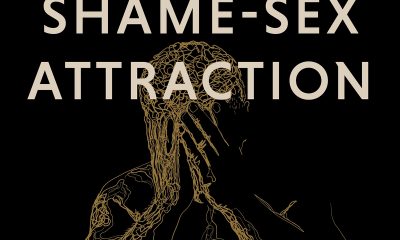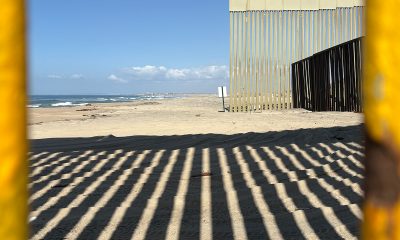Miscellaneous
Baja California governor vetoes conversion therapy ban bill
Measure overwhelmingly passed in Mexico state’s Congress on April 21
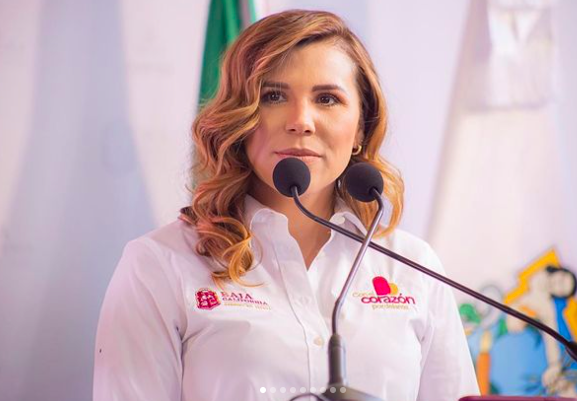
MEXICALI, Mexico — The governor of Mexico’s Baja California state has vetoed a bill that would ban so-called conversion therapy.
The bill, which passed in the Baja California Congress on April 21 by a 20-4 vote margin, would specifically amend the state’s Penal Code and non-discrimination law to ban the discredited practice. Anyone convicted of conversion therapy would be fined and receive a sentence of between 2-6 years in prison.
Media reports indicate Gov. Marina del Pilar Ávila Olmeda vetoed the bill in order to send it back to lawmakers “to be able to strengthen this initiative from our points of view.” Eduardo Arredondo, an activist and member of the Congress’ Youth Parliament who pushed for the measure, on Tuesday told the Los Angeles Blade that Ávila made her decision in response “to the pressure that conservative groups put on her.”
“They maintain that each person is free to profess the religion that they want and can therefore act in accordance to their beliefs,” said Arredondo. “This includes seeking ‘help’ or an ‘advisory opinion’ in a situation in which their son or daughter is a member of the LGBT+ community. They also maintain that they, as parents, have the right to seek help to educate their child in the best way.”
Arredondo in a statement further defended the bill.
“The approval of the (conversion therapy) bill in Baja California represents a big step forward in the recognition of the rights of the LGBT+ community in the state,” he said. “The delay in the publication of the law on the part of the governor represents a setback in the guarantee of these rights. As long as this law is not published, therapies will continue to take place and many young people and children will continue to be subjected to these practices.”
Altagracia Tamayo is the president of Centro Comunitario de Bienestar Social (COBINA), a group in the state capital of Mexicali that serves LGBTQ+ people and other vulnerable groups.
Tamayo on Monday at a press conference that Comité Orgullo Mexicali, another local LGBTQ+ rights group, organized in response to Ávila’s veto said she survived conversion therapy.
“Conversion therapy damages the most intimate part of what makes children and young people a human being,” said Tamayo.
Seven other jurisdictions in Mexico have banned conversion therapy.
Breaking News
Trump administration sues California over trans student-athletes
Lawsuit claims state policy violates federal law on school sports
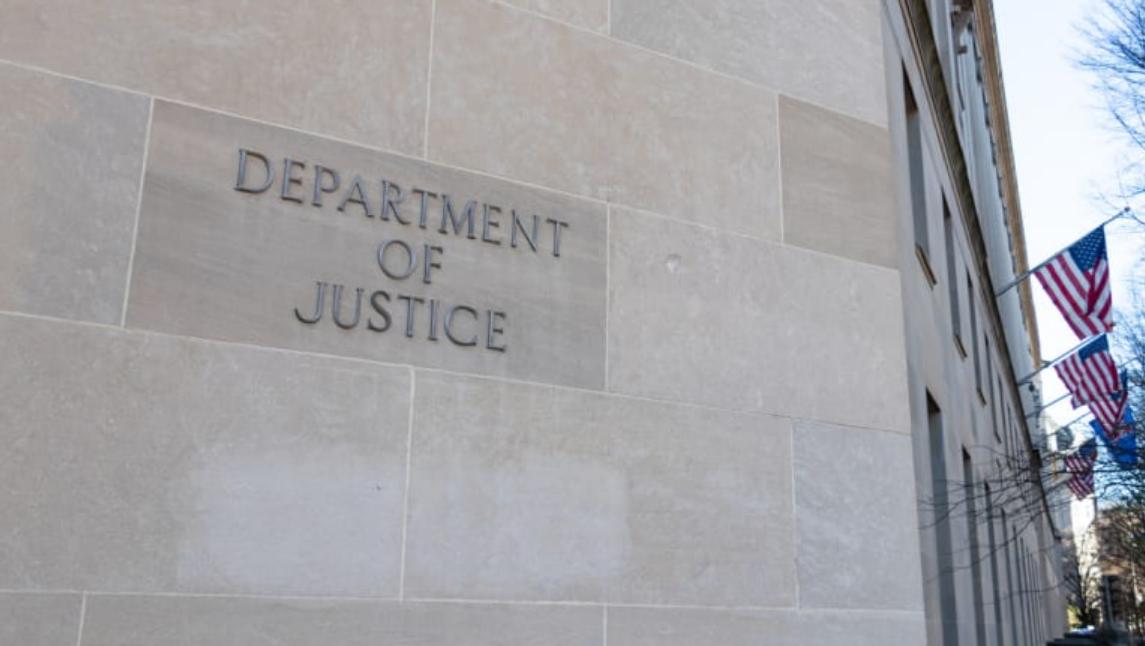
President Donald Trump is making good on his threat to punish California officials for allowing transgender female student-athletes to compete with cisgender girls in school sports.
On Wednesday, the U.S. Department of Justice announced it is suing the state’s Department of Education, claiming California’s policy to allow trans students to compete with other girls violates Title IX, the federal law that bans discrimination in education based on sex. The DOJ’s suit says California’s rules “are not only illegal and unfair but also demeaning, signaling to girls that their opportunities and achievements are secondary to accommodating boys.”
As the Washington Blade reported in June, this lawsuit follows a warning by the Trump administration to end the trans participation policy within 10 days or face referral to the DOJ as well as the loss of federal education funding.
And California may merely be the first to face legal action, according to U.S. Attorney General Pam Bondi, who warned that the 21 other states which permit trans girls to compete in female athletics could also face challenges by the federal government.
“If you do not comply, you’re next,” she said in a video posted on the DOJ website. “We will protect girls in girls sports.” Bondi was joined by Secretary of Education Linda McMahon.
The DOJ suit named California’s Education Department and the California Interscholastic Federation, the governing body for high school sports. A spokesperson for the CIF told the Associated Press the organization would not comment on pending litigation.
A spokesperson for Democratic Gov. Gavin Newsom deferred to the CIF and the Department of Education in declining to comment on the lawsuit since the governor was not named a defendant. But Newsom’s office told the AP that the Trump administration’s attacks on its policies protecting transgender athletes are “a cynical attempt” to distract from the federal government’s withholding of funds for all students who benefit from after-school and summer programs.
Newsom, however, has come under criticism — most notably by the Human Rights Campaign — for remarks he made in March, that allowing transgender athletes to compete in women’s sports was “deeply unfair,” as the Blade reported.
For more than a decade, California law has allowed students to participate in sex-segregated school programs, including on sports teams, and use bathrooms and other facilities that align with their gender identity.
But headlines about AB Hernandez, an out trans female high school student-athlete who won titles in the California track-and-field championships last month, drew condemnations from Assistant U.S. Attorney General Harmeet Dhillon, and President Trump himself.
Following the meet, Dhillon wrote in a letter to the California Interscholastic Federation that it violated the Equal Protection Clause of the Constitution by allowing trans girls to compete against other female athletes.
As for the lawsuit, DOJ claims California’s policies “ignore undeniable biological differences between boys and girls, in favor of an amorphous ’gender identity.’”
“The results of these illegal policies are stark: girls are displaced from podiums, denied awards, and miss out on critical visibility for college scholarships and recognition,” the suit says.
Last week, the U.S. Supreme Court agreed to hear two cases challenging state bans on trans student-athletes, as the Blade reported. More than 20 states have limited trans girls from participating on girls sports teams, barred gender-affirming surgeries for minors and required parents to be notified if a child changes their pronouns at school. More than two dozen states have laws barring trans women and girls from participating in certain sports competitions. Challenges to some of those policies are still being decided by courts across the country.
Back in February, the president signed an executive order that bans trans girls and women from participating in sports that match their gender identity, as the Blade reported.
Supporters of banning trans girls and women from competing include the conservative California Family Council, which has posted a petition online, arguing a ban would restore fairness in athletic competitions. Opponents like Equality California say bans are an attack on transgender youth.
“Local schools and athletic associations are the ones who should be handling these issues, and they are already creating policies that protect transgender youth and ensure a level playing field for all students. A federal ban that overrides those rules could require young girls to answer inappropriate personal questions or even be subjected to genital inspections by strangers if they want to participate in sports,” the organization said in a statement in February.
“The head of the NCAA, himself a former Republican Governor, recently told a U.S. Senate panel that he knew of less than 10 out transgender athletes among the 510,000 currently competing in college sports—less than .002 percent of all NCAA athletes.
“Studies confirm that participation in sports provides kids with invaluable life skills such as teamwork, leadership, discipline, and cooperation—fundamental lessons that every young person deserves the chance to experience. Beyond the field, sports also contribute significantly to students’ overall well-being, fostering better mental health, boosting academic performance, and enhancing self-esteem and confidence.”
a&e features
From Drag Race to Dvořák: Thorgy Thor takes the Hollywood Bowl for Classical Pride
This Thursday, the Hollywood Bowl will host the nation’s first Classical Pride, spotlighting LGBTQ+ artists of today and those who have made lasting impacts across centuries of music.

Thorgy Thor is reimagining what a symphony concert can be – queerer, louder, and way more fabulous. Classical music has always been a little gay; Thor is just making it official.
This July 10th, the Hollywood Bowl will be shaking things up with something a lot more fabulous than their usual line-up: Classical Pride, a star-studded celebration of queer excellence in classical music. Conducted by Oliver Zeffman, the program fuses Bernstein and Tchaikovsky with the glittering premiere of Pride Songs, reminding audiences that even the most straight-laced and serious-faced composers had secrets, some of which wore capes and wrote love letters to their (clears throat) roommates.
Enter Thorgy Thor, violinist, drag icon, and reigning monarch of orchestral mischief. Known from RuPaul’s Drag Race and her genre-busting “Thorchestra” shows, Thor is not only crashing the classical music party but redecorating it as she does. Armed with a Juilliard-level command of the violin and a wardrobe that would make Marie Antoinette feel modest, Thor’s been turning symphony stages into something that looks a lot like Studio 54 with better acoustics.
Ahead of her Hollywood Bowl debut, our publisher Alexander Rodriguez caught up with Thor to talk about shattering stereotypes, confusing classical purists, and why drag queens might just be the saviors of a dwindling symphony scene. Spoiler: there will be feathers, fan clacks, and at least one moment of unexpected depth. Because when Thor shows up with a violin and a vengeance, everyone listens, whether they planned to or not.
Some people associate Pride with dance and club music—but not classical. Why do you think that is, and why is it important to change that?
There’s a lot to unpack there. First off, I’m one of those people who definitely associates Pride with music – club music, dancing, parades, rainbow colors, joy. But not many people think of classical music in that context. I’ve been a classical player my whole life, and I’ve also marched in Pride parades. I celebrate both.
The truth is, a lot of people just don’t have access to the history of queerness in classical music. But it’s there. Some of the most prolific composers and conductors – Copland, Tchaikovsky, Bernstein – were gay. Back in the day, let’s be honest, probably everyone was a little bit queer. And since they’re not here to argue it, we get to speculate.
Classical Pride shows are important because they start to bridge that gap. It’s about giving people – especially younger folks – access to stories and voices that have always been part of this tradition but were hidden or unspoken.
How did growing into your identity affect your relationship with music and performance?
I was always immersed in music. My parents supported me with lessons, and I played in orchestras all through school – concertmaster, regional competitions, all that. I was always in the front. But something felt incomplete.
Coming into my queerness, I realized sitting quietly in an orchestra just wasn’t enough. My mind always imagined more – characters, colors, lights, theatrics. I’d be playing Tchaikovsky and thinking, “What if there was a drag artist miming with fans right now?” I needed more than just the music; I needed performance, spectacle, fun.
So I started pushing the dress code. I once showed up in a tux with the pants cut into shorts and bright magenta socks – and the orchestra was not into it. I’d say, “Why do men have to wear stiff bow ties when women get to wear flowy chiffon?” I wanted to challenge tradition, even if it meant getting in trouble. And I often did. But I realized that standing out was inevitable – so I decided to embrace it.
Now, funny enough, Thom Browne and Tom Ford are putting out tuxedos with shorts and high socks. I was just ahead of the trend. You’re welcome.
Why do you think celebrating classical music is important to the queer community right now?
Honestly, orchestras are struggling. Some are shutting down. Audiences are aging. There’s a perception that classical music is stuffy or boring, but it’s not. It’s powerful. It’s emotional. It moves people.
When I perform my “4G” show with symphonies, I always have to win over the orchestra first – they’re incredibly disciplined and talented, but also very skeptical. They’re like, “We just played with Hilary Hahn and Renée Fleming… now who’s this?” But then the show starts, and they see how serious I am about the music and the drag. And afterward, they often say, “That was the most fun I’ve had in 15 years.”
I ask the audience, “Who’s here because of RuPaul’s Drag Race?” Half cheer. Then I ask, “Who’s here because they have season tickets and don’t know who I am?” The other half cheers. That’s the goal: to bring these two very different groups together, laughing and feeling something powerful – together.
What’s your approach to blending these two audiences, drag fans and classical music fans, in one space?
I break the fourth wall. I talk to the audience. I do the first-ever live symphonic walk-off competitions – with Beyoncé, Lady Gaga, feather boas, and fans. I ask, “Who’s 65 and wants to werk?” I get kids up there. I give people drag names. It’s fun, inclusive, and unexpected.
A lot of classical audiences aren’t used to being asked to breathe, let alone unwrap a lozenge. So I set the tone from the top: “Relax, this isn’t that kind of concert.” It creates a space where different generations and communities can laugh together. That’s what I’m proudest of.
Has the current political climate affected your work?
Definitely. Just last month, I was scheduled to perform with the International Pride Orchestra at the Kennedy Center. Then, suddenly, we got dropped – after our president publicly tweeted that he didn’t want any “gay shows” at the Kennedy Center. He threatened to fine them something like $400,000.
Now, he doesn’t run the Kennedy Center, but the pressure worked. They canceled us. It was heartbreaking. Did I respect the decision? Not really. But I understood – they had a whole season to think about. Still, it hurt.
The good news? We moved the show to the Strathmore Theater, and it was incredible. Sold out. The audience showed up, loud and proud. The press was global – Germany, Italy, everywhere. That was beautiful and sad at the same time. That this is what’s making international news. But the show was triumphant.
Tell us about your new show, “Music and Fashion.”
It’s a wild ride – from Bach to Beyoncé. It’s funny, visual, historical, and super interactive. I do about 15 costume changes, some on stage, some on video. We start with a caveperson banging sticks and move through every decade – 1920s, Beatles, Taylor Swift, you name it.
It’s about moments where music and fashion collided and changed everything. From Marie Antoinette to Madonna, and how that relationship evolved. It’s smart, it’s campy, and I’m incredibly proud of it.
What can we expect from your appearance at the Hollywood Bowl’s Classical Pride show?
I’m one part of a bigger lineup that includes Anthony Roth Costanzo, Jamie Barton, Pumeza Matshikiza – some amazing talent. I’ll be performing a cheeky and sexy tango on violin by Jacob Gade, with a little twist in the middle.
I’ll also be doing a live on-stage interview with conductor Oliver Zeffman. Usually conductors show up, wave the baton, and vanish. But I want people to know who’s up there. I warned Oliver I’ll be asking him some left-field questions—and I’m not telling him what they are. It’s going to be fun, a little uncomfortable, and very entertaining.
What does the future look like for queer artists in the arts under this administration?
I’m going to keep doing what I do – being visible, being joyful, and doing it all with color, humor, and discipline. Just existing in this space is an act of rebellion. I don’t need to be political in every show. The work speaks for itself.
Queerness has always been in classical music. I think hundreds of years ago, people were more open than they are now. Today, it’s wild how threatened people get by others simply being happy. I don’t know what’s coming in the next ten years, but I’ll be here, still playing, still dressing up, still making people laugh.
What’s your message to the community this Pride season?
Dare to be different. I get kids coming up to me saying they never thought they could love classical music and be queer at the same time. But they can. You can love two seemingly unrelated things – and do them both fully.
Usually the people who are “too weird” or “too different” are the ones who change the world. And eventually, everyone copies them anyway.
Catch Classical Pride at The Hollywood Bowl Thursday, July 10th at 8 pm. Tickets here.
Miscellaneous
Can you really find true love in LA? Insights from a queer matchmaker
Find out how to get past the obstacles of queer dating in LA from our expert matchmaker
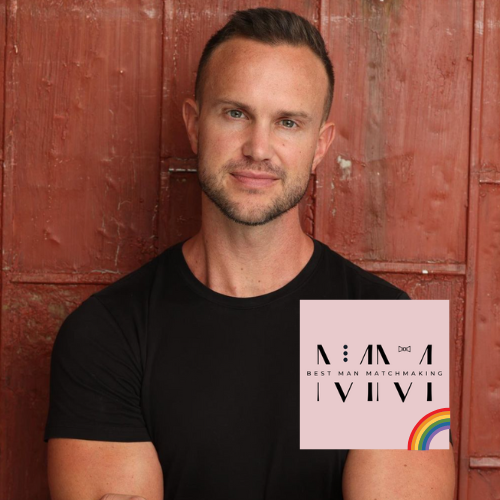
As a matchmaker who’s supported thousands of gay, bi, queer and trans people nationwide, I can say with confidence that this city is full of options, but few are looking for something serious.
The swiping culture and the constant search for “the next best thing,” paired with the fast-paced, image-focused energy of L.A. can make finding a genuine, grounded connection feel nearly impossible.
That being said, for those of us who are ready for committed relationships, there’s loads of opportunity. Let me share a few tips on how to best capture the love you’re looking for.
Everyone says they want love, but are they ready for it?
Saying you want a relationship and being ready for one are two very different things. A lot of people in our community don’t get to date openly when they are younger. Many of my clients—typically between 30 and 60—came out later in life. They didn’t get to be queer teenagers or young adults in love. So now, in places like West Hollywood, they’re finally living out that chapter.
What that means is that a lot of emotional maturity happens “later”. Some are still exploring, experimenting and trying to figure themselves out and what they seek in a life partner. And while there’s absolutely nothing wrong with this path, it does make it harder for those who are ready to settle down to find someone on the same page. What to do? Be crystal clear on dates and on dating apps. If your intention is long-term commitment, be upfront. If you’d like to date and see what’s out there, share that. As a matchmaker, I deeply believe this there’s someone out there for everyone.
The Culture of Constant Options
Los Angeles is a city of abundance and in the dating world, that’s not always such a good thing. With endless apps, parties and pretty faces, there’s always the temptation to keep looking, keep swiping, keep chasing. I hear it all the time: “he was great, but what if there’s someone even better?” That mindset sabotages so many real connections before they even have the chance to grow.
How to overcome this?
Get intentional. Ask friends to set you up. Tell people at work that you’re ready to settle down. Edit your app profile to say you’re looking for commitment. Weed out the men who aren’t aligned with what you ultimately want.
The rise of speed dating and matchmaking
Since the COVID-19 pandemic began, interest in speed dating events have surged. People are craving real-life, organic connections again, but they’re burned out by dating apps due to ghosting, fake profiles and endless small talk that goes seemingly nowhere.
For men in their 50s, 60s, and 70s, online dating can feel downright hopeless. Many have been catfished, misled, or targeted by people who just want financial support and it’s heartbreaking. These men want something real—a partner, a teammate, a best friend. Speed dating and matchmaking services typically single out (pun intended) those ready for a relationship. Be sure to consider getting offline and meeting someone through these methods.
Dating in LA is not hopeless—it’s just complicated. But with the right mindset and sometimes the right support, real love is possible.
Daniel Cooley, LGBTQ+ Matchmaker & Co-owner of Best Man Matchmaking – California’s premier service for queer and trans men seeking emotional connections. Learn more here.
Ask Daniel below!
Miscellaneous
Gay bar in California bans MAGA gear — but no other political expression — from its premises
MAGA is a terrorist threat to the LGBTQIA+ community

Do not let anyone bait you into a “both sides” argument on this topic. Trans people can confirm that we no longer live in a country where freedom of expression exists in the first place, so the point in and of itself is moot. Don’t waste your energy.
But especially don’t be shamed by those who imagine themselves to be more enlightened than you as they make the tired false equivalence that MAGA is just another political ideology that deserves the same freedom of expression as liberal points of view.
The owners of the Badlands Bar are keeping their patrons safe from terrorism. Yes, MAGA is a terrorist threat to the LGBTQ community. Oxford’s definition of terrorism is “the unlawful use of violence and intimidation, especially against civilians, in the pursuit of political aims.”
It’s too long a list for this article, so here’s a link to a running tally of the government’s actions against the LGBTQ community since Jan. 20.
It started, on Trump’s first day as president, with trans people being forcibly stripped of their very identity — and with it, all protections — under the law. This trend has continued, ominous drip after ominous drip of frequently illegal Executive Orders that dehumanize, disenfranchise and dismantle the basic rights and dignities of trans and queer Americans. If you’re following the Project 2025 playbook, as the federal government is, you’ll notice that ending marriage equality is quickly coming up on MAGAs To Do list.
All of that—the bullying, the emotional and psychological abuse, the stripping of rights, the (eventual, inevitable) tearing apart of families—is violence, by definition. The anxiety you feel every day as an LGBTQ American? That’s intimidation. And that is why living under MAGA as an LGBTQ person means living in a terrorist state.
Perhaps the idea that MAGA perpetrates outright terrorism seems dramatic, especially for those who remember 9/11 and maybe we don’t need to add more drama to this historical moment.
Then let’s consider the terrorism of words and ideas.
Stochastic terrorism, is a particularly nasty form of political expression, where those with cultural power spout hostile rhetoric about a group, creating a culture of hate that inevitably — but not directly — results in violence. When we talk about haters becoming emboldened by Trump’s rhetoric, this is the dangerous potential that absolutely does become reality.
The insidious part of stochastic terrorism is that there’s plausible deniability on the part of the instigators. Truly, who do we blame for the murder of Lauri Carleton in Lake Arrowhead, CA?
Do we blame the individual who shot her after he screamed epithets about the Pride flag she flew in front of her store? Or do we blame the talking heads and podcast hosts who were then spending untold airtime equating LGBTQ people with pedophilia and grooming? Or do we blame the governors who sought to ban the flying of Pride flags in public, for turning them — and all of us who fly them — into high-profile lightning rods for hate? Who should be charged in a court of law for this hateful crime?
If any comparison to terrorism still seems too far-fetched to you, even for MAGA, then let’s consider the term “gang.”
Flip all the racist rhetoric you’ve passively absorbed about the kinds of people most likely to be in a gang, and consider Donald Trump, the current Republican Party, and MAGAs specifically as you read the following definitions of what a gang is.
According to the Department of Justice:
- Gangs adopt a group identity in order to create an atmosphere of fear or intimidation.
- Gangs are typically organized upon racial, ethnic, or political lines and employ common names, slogans, symbols, hand signs, or style of clothing.
- The gang’s primary purpose is to engage in the use of violence or intimidation to enhance or preserve its power, reputation, or economic resources.
If we hold MAGA to the DOJ’s gang standards it so easily fits into, perhaps we can more easily hold that most businesses explicitly bar gang symbols from their premises, often as an easily-enforcible safety measure, and consider the Badlands Bar owners’ actions in that context.
But if you’re still suspicious of any of this rhetoric, then all that’s left is to consider the reality of MAGAs actions, which owners of LGBTQ bars around the country experience on a regular basis.
On Feb. 22 at Scorpio, in Charlotte, NC: an exception made to a “no political affiliations of any kind” dress code, devolved into the individual making transphobic remarks at the entertainers during the drag show. He refused to leave when asked and became aggressive toward security, resulting in police intervention.
On March 14 at the Chatterbox Jazz Lounge in Indiana, MAGA hat-wearing patrons aggressively misgendered and harassed a bartender and were ejected. The video of the altercation went viral; the owner reports his bar has since received several threats of arson and bodily harm.
Four days after the video of that incident went viral, the Chatterbox Tavern in Tennessee received threatening emails and phone calls.
These incidents were flashpoints that reported, often by MAGAs claiming victimhood. Untold incidents go unreported due to intimidation or uninvestigated due to bias. According to GLAAD’s 2022-24 ALERT Desk Report, over 1,850 anti-LGBTQ incidents were reported across all 50 U.S. states. That’s more than 600 acts of vandalism, bomb and mass shooting threats, assaults, and cases of arson per year — nearly two per day. These incidents have resulted in at least 161 injuries and 21 deaths. The perpetrators — when apprehended or known — wore MAGA gear, screamed MAGA slogans, had shared MAGA rhetoric online, or were members of MAGA-associated groups like the Proud Boys, Q-Anon, Three Percenters, Libs of TikTok and Moms for Liberty.
If after all of this — and the rest yet to come — you still believe that MAGA simply represents an opinion about a stance on taxes, individual liberties and the size of government, then this author will be the bigger person and acknowledge your identity as part of America’s inherent Diversity, wholeheartedly Include you as an Equal in this vast multiplicity to which we belong called America.
And then ask you, if it’s all directly equivalent: when will MAGA do the same for LGBTQ people?
Of course you are free to wear your red hat and shirt wherever you please — your gang runs this place, after all. You’ll even be pardoned for violence you commit, like the Jan. 6 terrorists and your poster boy Kyle Rittenhouse. Don’t fret.
But don’t expect us not to protect our own just because we’re a bunch of queers.
The author of this Op-Ed wishes to remain anonymous for safety reasons, given the nature of the issues discussed. Citations are linked to GLAAD’s expert resources, but this Op-Ed was not written by anyone affiliated with the organization.
Arts & Entertainment
Mr. BarBareians 2025 is crowned!
Precinct DTLA was home to the first-ever Mr. BarBareians competition, celebrating sensuality and queerness.

Last weekend Los Angeles Blade was on the scene and one of the guest judges alongside Los Angeles personalities from the adult and nightlife world including Meatball, Dean Michaelz, Adam Keith, Mr. Sister Leather 2024, Colin MacDougall and Mr. Precinct Leather 2024 to crown the first ever Mr. BarBareians at Precinct DTLA.
The Mr. BarBareians is a nod to the male beauty pageant, just a bit edgier and dare we say, sexier? Four contestants competed against each other in a series of categories that included talent, walk, pose, looks and Q&A.
The pageant’s debut contestants consisted of popular nightlife dancers Judas King, Han Cross, Ace Newbury, and De Hanno. The evening was emceed by Leatherman Moshiel. Playing on the barbarian theme, Precinct’s staff and a number of the patrons were dressed accordingly, adding some skin and muscle to the evening.
The show was well-produced and the contestants certainly gave it their all. There was not a weak contestant among them and the scoring was very tight. As our bold emcee remarked, these contestants are more known for their bodies than for their prose, so a few faltered during the Q&A.
As a fun bonus, illustrator and performance artist Jonathan Kidder was on hand, doing his famous quick sketches. Miraculously, he is able to capture the essence of a person in a matter of a few strokes of the pen. He was able to do a portrait of the entire cast in 60 seconds.
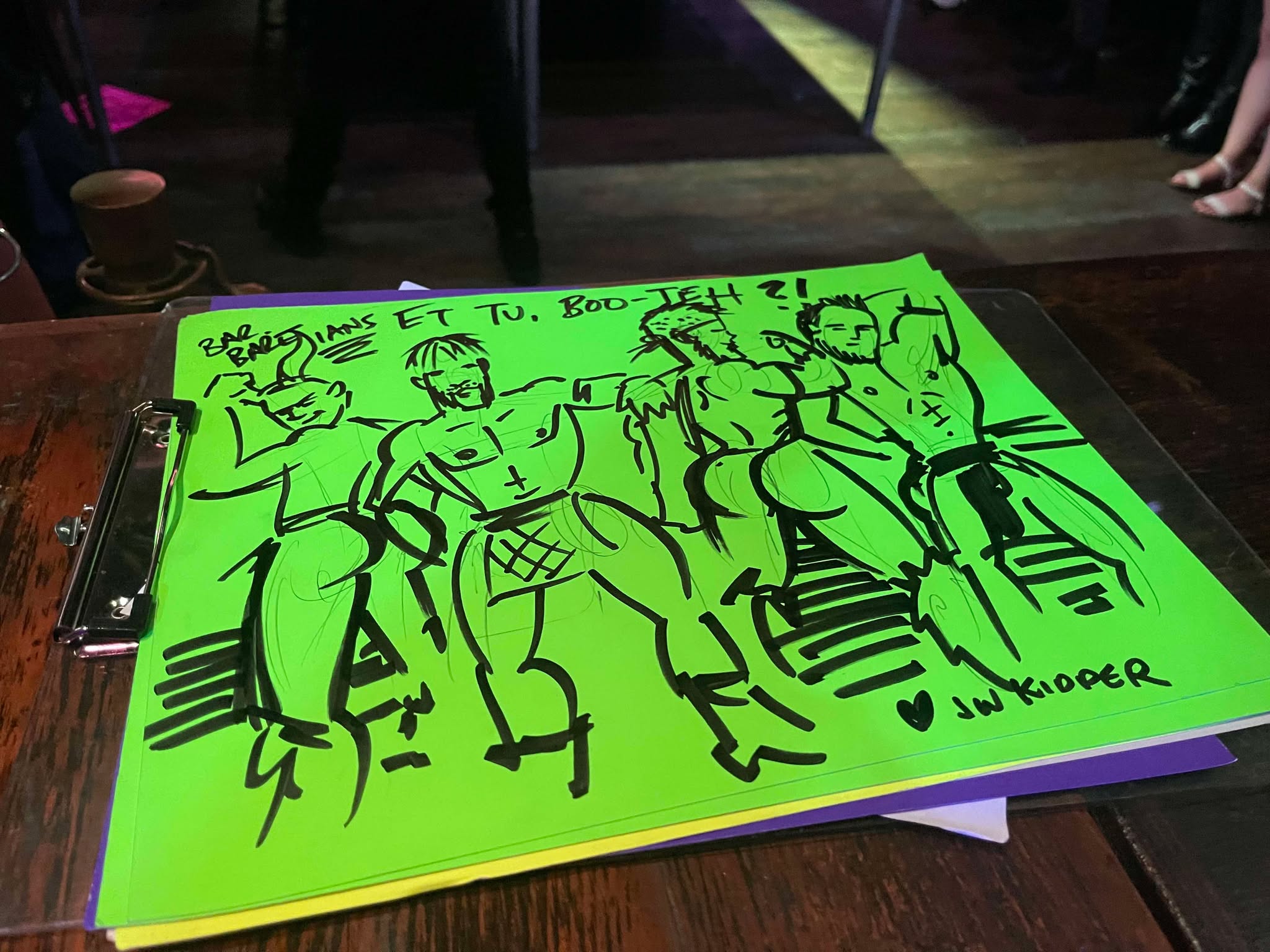
Work by Illustrator JW Kidder
LA-based veteran nightlife photographer Dusti Cunningham was feeling the spirits as he roamed around and captured the evening in his signature style, catching the crowd and the cast in their finest and sexiest.
After a short tally of the scores, De Hanno was crowned Mr. BarBareians 2025.
His winning personality and consistent talent across the categories, together with his winning assets, set him apart from his fellow contestants. In the end, everyone was a winner because the cast clearly had a good time and supported each other during the show.

De Hanno named Mr. BarBareian 2025 / Photo by LA Blade
Precinct couldn’t have been a better venue to hold the event. Not only does it have ample space to accommodate the large crowd, but it has a great staff, stiff drinks, and stellar stage and lighting. We also love the sense of community here. Everyone is welcome under the club’s roof. Gay, straight, queer, trans, bears, twinks, leather lovers, and everything else under the sun. No one feels like an outcast or a stranger and it has become the ultimate safe space for the queer community in Los Angeles. This is how we should be congregating in fellowship, especially during these trying times. Precinct offers a great atmosphere for those who are looking to expand their experience past the Weho crowd (not that there is anything wrong with Weho, we are there all the time as well).
Mr. BarBareians and the BarBareians parties are produced by Hump Events, also responsible for Los Angeles’ Turbo for the dance crowd, Hump night celebrating the Middle Eastern community, and Steam for the cruisers. Like Precinct, they believe in representing the community and everyone is welcome.
Hats off to the first Mr. BarBareians, we will be waiting with our scorecard for next year!
a&e features
Pose’s Dyllón Burnside takes on most ambitious role yet in latest film
In this Blade exclusive, actor Dyllón Burnside gives us a candid look at his latest role

Actor Dyllón Burnside made an impressionable splash by playing Ricky Evangelista in FX’s Pose. Not only was he able to infuse sincerity and pathos into his role, but he has used his platform to speak against toxic masculinity, advocate for LGBTQ safe spaces and inspire activism.
Recently, he has partnered with BET+ for the film Fighting To Be Me, playing perhaps his most ambitious role to date. Dyllón plays Dwen Curry in a new biopic where he plays a celebrity stylist known for working with big names like Missy Elliott, DMX, Mariah Carey and more.
Leading a double life in many ways, Dwen also spearheaded a multi-million dollar fraud ring that came to be known as The Gay Gangsters. The film is part true crime, part Hollywood glam and all LGBTQ+ storytelling. The film is about family, identity, survival and self-acceptance as Dwen transitions from a gay man, to a proud transgender woman.
The film comes at a crucial time, where the nation is experiencing cutbacks in DEI initiatives that are affecting both the Black and the queer community. Fighting To Be Me is the latest in BET+’s efforts to highlight stories from the queer community.
Representing both the Black and queer communities in this film, it was essential for Dyllón to portray Dwen in a way that was both truthful and sincere.
We chatted with Dyllón ahead of the film’s premiere about his experience.
“It’s unlike any other project that I’ve been a part of. I have my processes and the things that I do as an actor to prepare that are my baseline. It’s rooted in my background in the theater and the things that I learned from my teachers in drama school and the different directors that I’ve worked with.”
But this process, while those things definitely helped Dyllón, there was so much of that, that Dyllón couldn’t pull from. He says he had to really stretch himself to immerse himself in Dwen’s story and world.
“I had a lot of conversations with her. It required me to be more curious than I think I’ve ever been in a role. I’m a seeker in that way, and I think that’s what I really love about working as an actor is really that process of discovery and getting curious and finding connections and doing the research. I love that kind of stuff.”
Dyllón was not familiar with Dwen’s story at first. After reading the script, he was compelled to tell her story, but it was imperative that he received the blessing from Dwen herself.
“I needed to have a conversation with her to make sure that she wanted me to play her. I wanted to be clear that this person, this trans person wants me to play them and they feel like I am the right person to portray them in this story. We had a beautiful conversation and it was that talk, just getting to look her in her eyes and understand her heart that made me decide I want to be a part of this project.”
Fighting To Be Me comes at a time when the nation is divided. Dyllón’s involvement as both the star and as one of the film’s executive producers is a testament to his belief that now is the time for this story to be shared.
“When we look at the times that we’re living in, when trans people are being attacked daily by the current administration, it is really troubling. The dehumanization of trans folks has gotten out of hand. I think we need to all have the opportunity to sit with the fact that my lived reality is not the same as someone else’s reality, but that doesn’t make their lived reality any less human or any less important or any less true.”
“I think that one of the beautiful things about this story is that it’s unlike any other story that I’ve ever heard or told. Yes, there’s the trans element, but it’s a full life story. It’s important to talk about trans issues as a means of advocacy. I’m also really interested in talking about Dwen Curry as a human being. What are the circumstances that conspired to create the situations that forced Dwen Curry to make the decisions that Dwen Curry made? We’re talking about the socioeconomic climate of the eighties. We’re talking about the politics of the eighties. We’re talking about HIV and AIDS. We’re talking about the stigma around being queer. We’re talking about poverty. All of these issues conspire to create a situation where the wind has to make certain decisions in order to survive and thrive.”
According to Dyllón, the story directly relates to what is happening right now. He elaborates:
“So many of us find ourselves in that position right now where there are all of these different systems and institutions that seem to be closing in around us and putting us between a rock and a hard place. We have to figure out how to stay true to ourselves. How do we protect ourselves? How do we eat? How do we stay safe from the cops shooting us down in the streets or from some person who hates us because of the color of our skin, or our gender or sexual identity? All of these things create a situation for people that drives them to make really hard decisions. And I think I’m more critical of those systems than I am the individual who is forced to exist in those systems.”
BET+’s inclusion of queer stories is a milestone. Typically, minority programming was resistant to talking about queer people. As part of that representation with Pose and now with this film, Dyllón has his take on the growing trend of inclusion.
“I may not say that minorities don’t celebrate folks, but I will say that historically we’ve seen that the media companies across the board have not supported stories. I think folks see we’re able to recognize the cultural impact as well as the fiscal benefits of telling more inclusive and expansive stories about who we are, who we get to be. I hope that continues. I hope we continue to see that in spite of all of the efforts to roll back DEI, and that media companies will stand firm in their commitment and desire to tell stories, real authentic stories about real authentic people.”
Totally giving himself over to the portrayal of Dwen on her journey of self-discovery and acceptance, Dyllón has started to look at his own relationship with identity and being true to himself. It is the message he has for himself, it is the message he has to his fans.
“One of the things that I’m really striving for in my life is integration, this idea that I don’t have to be a separate human being with my family that I am with my friends, that I am at work on set, that I am on stage, performing my music, that I am in the recording studio, that I am when I give a speech somewhere as the advocate in a political space. I don’t have to compartmentalize myself in those ways and I get to bring all of myself to every space that I’m in, even if that means I’m overwhelmed, or I’m tired, or I’m stressed, or I’m afraid.
The conversation that I’m having with myself in this moment, and by extension having with my audience, is this message around integration. And standing firmly 10 toes down in the truth of who I am and allowing that to be messy and allowing that to be uncertain and weird and to be unapologetic about the messiness and the weirdness and the lack of clarity.
Just show up as your full self wherever you find yourself and trust that your spirit will lead you and guide you in the way that you should go. Unplug from social media and get outside.”
Fighting to Be Me: The Dwen Curry Story is now available on BET+
Community Services - PSA
Heal in community at these upcoming mutual aid events
These upcoming events will donate proceeds to fire relief funds and directly impacted community members

If you are in need of resources, services or just a distraction from the onslaught of devastating news, we’ve compiled a list of upcoming events and organizers who are helping heal the community.
Stud Country will be hosting an event at Club Bahia on Jan. 20, where they will make matched donations for dance lessons at 8:30 pm and 10 pm, in financial support of those affected by the LA fires. Stud Country is an event organizing brand aimed at preserving and celebrating the legacy of queer dance spaces and honoring the rich history of LGBTQ+ cowboy culture. They host regular events and dance lessons across San Francisco, New York City and Los Angeles.
Bar Flores LA will be hosting their weekly event, The World Is Our Oyster this Thursday, Jan. 23 at 7 pm, geared at uniting the queer community through drag, dancing, DJ sets, tarot readings and eating oysters. On their Instagram post, they stated that a percentage of the proceeds will be donated to the California fire relief efforts.
BabyGay, a nonprofit aimed at building inclusive community spaces, issued a statement through their newsletter saying that they had to evacuate from their home during the peak of the fires, unsure if they would ever be able to return.
“In times of crisis like this, our strength lies in our unity and ability to support one another,” said the statement.
BabyGay LA is hosting a LA Queer Events Coalition at Center Silverlake on Jan. 25 from 1pm to 3 pm. The event will be moderated by Carla Ibarra from the LA Civil Rights Department and hosted by Chanel and The Circus, as well as Miss Marquez from Empowerment in Heels. Together, they will guide the community through an afternoon focused on support and immediate assistance. They will also be offering support from on-site therapists by the Open Space Therapy Collective, grounding yoga led by With Love Projects, direct access to essential resources and services, and more.
Trans Dudes of LA, Yes Ma’am Club, Whxremones LA and The Gay Agenda LA are co-hosting a benefit fund called Back On Our Feet, at Sassafras Salon on Jan. 25 from 7 pm to 1am. On their Instagram, they posted that ‘100% of the sales will be donated to the organizations supporting victims of the current fires in Los Angeles.’The suggested donation is $5 for tickets that can be purchased through Eventbrite. According to their post, the night will feature drag, DJs and dancing.
Butchona will be bringing back their event to Little Joy Cocktails in Echo Park on Jan. 26 from 4 pm to 9 pm, featuring the OG DJ’s that brought this event to the queer Latin American community of LA, playing corridos, quebraditas, banda and more. They will also be featuring special guest DJ Todo Trankiloski, who’s part of the Chulita Vinyl Club – a DJ group who plays vinyl sets and recently celebrated 10 years of building their brand and QTBIPOC support system. Though the event is always free, they will be accepting donations for 2 families directly impacted by the Eaton Canyon fire, as well as CHIRLA, the Coalition for Humane Immigrant Rights, supporting the immigrant communities of LA.
Mariposx Healing will lead a Somatic Soothing Zoom event in collaboration with Liberatory Wellness Network and Pat.Radical.Therapist, for people affected by the L.A fires on Jan. 28 at 6pm.
“This session is for people affected by the Los Angeles fires. Azul of Mariposx Healing will hold space for expression of emotions through somatic practices, movement, chanting and drum medicine,” reads the IG post.
Perverse4Verse will host their next event on Jan. 30 at the Heavy Manners Library, with a $10 suggested donation and all proceeds going toward a fire relief fund for the community. The theme of the event is collective healing, as they will be featuring community organizers and poets who will be gathering to celebrate leather love and collective care through poetry, togetherness and education. This event is hosted by Karla Lamb, a well-known community organizer in queer literary spaces.
Butch Monthly LA is hosting a donation-based event on Jan. 31, from 6 pm to 8 pm at the Rediscover Center Mid City. They will be hosting a Zine-making night in collaboration with Rebuild, to fundraise for LA Fire relief which will be ‘open to butches and those who love them,’ according to their IG post.
Lesbian Goth Night postponed their monthly event set for Saturday Jan. 11, in light of the fires and devastation felt by many community members and their loved ones. They will now be holding the event on Feb. 7 at 9:30 pm to celebrate Valentine’s Day, honoring the tickets from January’s cancelled event and opening up sales to welcome more people.
“We understand that the weeks have been heavy, as we are too still processing the devastation surrounding the fires,” reads an Instagram post by Lesbian Goth Night. “We were very much looking forward to our January event and seeing all the new and familiar faces\, but throwing the event during that time didn’t feel right on many levels.
California Politics
Ysabel Jurado: A political maverick changing the narrative in LA politics
Jurado says it’s time for something different and she is it.
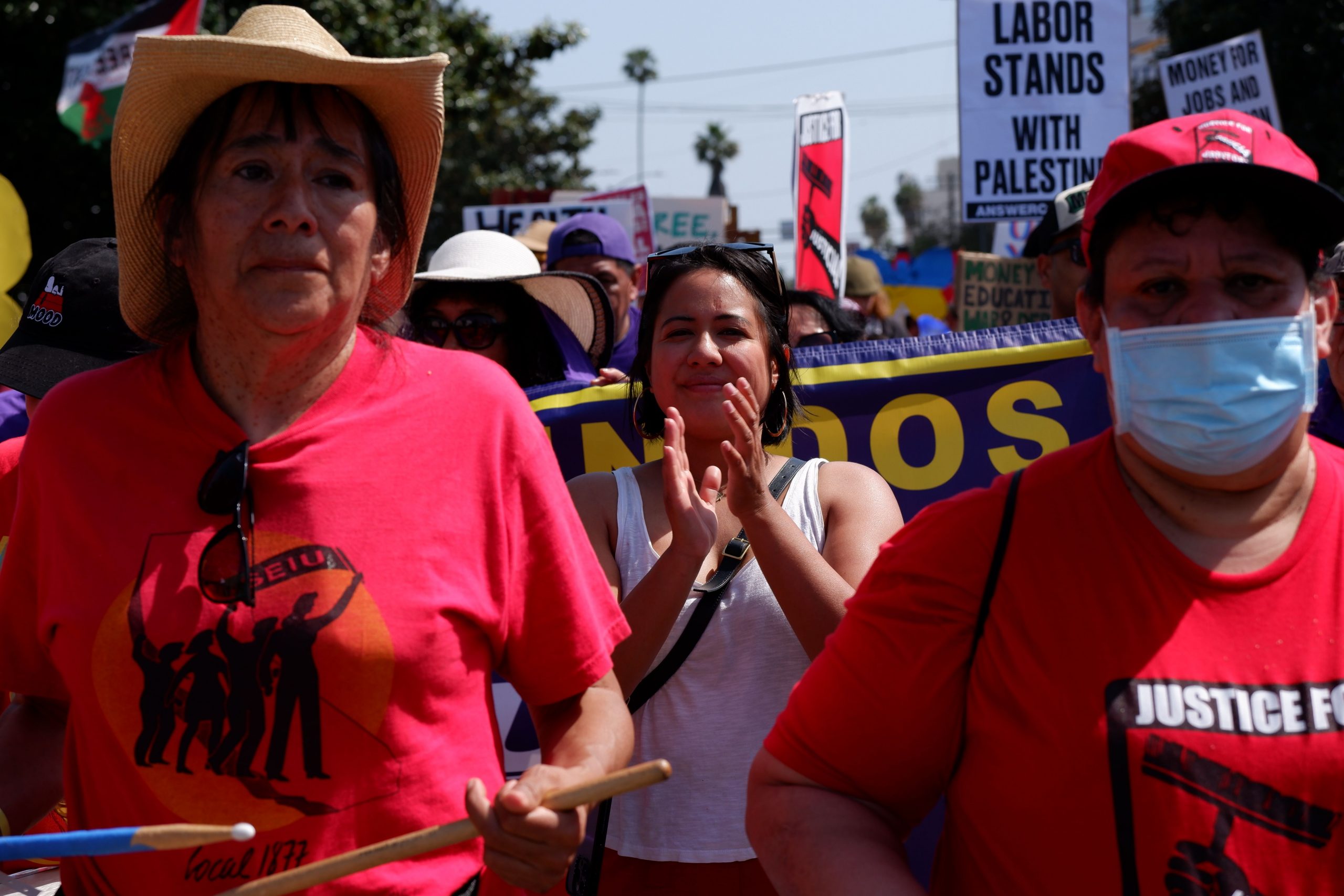
Tenant rights attorney Ysabel Jurado is known as the progressive, grassroots candidate in
the race for the hot seat that her opponent Kevin De León currently holds in Council District 14, even after years of recalls following a racism and homophobia scandal.
Jurado says it’s time for something different and she is it.
“I’m an API woman, I’m educated, I’m a citizen and English is my first language–
among others,” said Jurado in an interview with Los Angeles Blade. “And I’m also proud that on this team, we are largely led by LGBTQ+ folks, women of color, and people of color.”
As an out candidate, Jurado says she is intentional about the people she hires as part of
her campaign team. She is inclusive of nonbinary people and anyone who identifies as part of the QTBIPOC and LGBTQ+ acronyms, because she doesn’t just want to talk about them, she also wants to incorporate their lived experiences in her campaign mission. She says this in part
because of her own identity, but also because of the scandal that rocked De León’s political career.
The scandal follows various City Council members of CD-14 ranting about other BIPOC
members of Council and their LGBTQ+ families. The leaked audio recording included her
opponent De León — who at the time had his eyes set on running for mayor of Los Angeles.
“A lot of the groups talked about in these tapes are the people that we’ve recruited and
who we are making sure to build a coalition with,” said Jurado.
Going into this campaign race, she asked herself: ‘How do I go into this institution and
not become the worst parts of it?’
“If I ever become that, I want you to put my feet to the fire and shift me out of there,
because at that point I have betrayed myself,” responding to the question she had asked herself.
Jurado is currently facing backlash from many community members who support the
police force in Los Angeles, after she was elicited to respond to a question regarding her stance
on police funding. Some of those community members are now actively pushing for her to drop out of the race for Council District 14.
According to NBC4, family members of fallen Los Angeles Police Department officers
have spoken out to say they worry the remarks she made in regards to her stance on police
funding would hurt the LAPD’s ability to recruit new officers.
“In a meeting with students at Cal State LA, I quoted a lyric from a song that’s been part
of a larger conversation on systemic injustice and police accountability for decades…,” said
Jurado to NBC4.
Later, other news outlets reported that the person who elicited the ‘f-ck the police,’
response from Jurado, was a staffer working for De León.
“When you look at what I say and when you look at what I’m doing, I walk the walk and
I’m not going to take any bullshit sitting down, even though [De León] tries,” said Jurado in an
interview.
Jurado has been campaigning for this position since last summer and has since made
dozens of headlines that suggest she is a political force to be reckoned with and has been
building gains in the mostly Latin American Council district. She also brings up the long and problematic history of candidates and elected officials who have resigned, been indicted for corruption, or who have been asked to ‘step down over shady backroom deals.’
“The focus isn’t about me and him and what petty back-and-forth things we say, it’s
about our communities and wanting to make sure we talk to voters and rising above. Because at the end of the day, it’s about the work,” said Jurado. “It’s not about the noise and trying to bring it back to who gets hurt by all these conversations, which are the constituents.”
Jurado is an out LGBTQ single mother and lifelong resident of Highland Park who has
tirelessly fought for tenant rights and protections during her time as a tenants’ rights attorney and housing justice advocate. She prides herself in being a self-made politician who started her journey at Pasadena City College, then earned her bachelor’s degree at University of California, Los Angeles and then went to law school.
Jurado then went on to fight gentrification-driven displacement and in her candidate
statement, she says she spends her days protecting neighborhoods from corrupt developers and politicians.
“This campaign is for ‘the other.’ Being a daughter of immigrants, or whatever your
identity is, you become fluent in two different modalities,” said Jurado. “You know what the
dominant culture is and what the non-dominant culture is and you learn how to navigate through it. I think that is a superpower our people have, people who have always been ‘othered.’
Jurado is currently canvassing in the community, leading up to the election with support from Hugo Soto-Martinez, LA City Council Member of CD-13 and Eunisses Hernandez, LA City Council Member CD-1.
Miscellaneous
Pope Francis meets with transgender, intersex Catholics
Meeting took place at pontiff’s Vatican residence on Oct. 12

Pope Francis met with a group of transgender and intersex Catholics and LGBTQ allies at the Vatican on Oct. 12.
During the meeting, participants shared their personal stories, urging the pope to support greater acceptance within the church and address its stance on gender-affirming care.
Sister Jeannine Gramick, one of the co-founders of New Ways Ministry, a U.S.-based Catholic organization advocating for LGBTQ people, arranged the meeting that took place at Casa Santa Marta, Francis’s residence in Vatican City.
The delegation that met with the pope included Nicole Santamaría, an intersex woman, Michael Sennett, a trans man, and Cynthia Herrick, a doctor who works in a gender medicine clinic. Over the course of more than an hour, they recounted to Francis their struggles with depression and suicide on their transition journey and emphasized the positive impact of gender-affirming care.
New Ways Ministry Executive Director Francis DeBernardo, who was present at the meeting, said Francis didn’t respond vocally so much, but, clutching his cross, looked “sincerely pained” as he listened to people describe their hardships and “nodded vigorously when they talked about how positive medical transition was for them.”
“He really thanked them. He was very grateful that he had this opportunity,” DeBernardo said.
The impetus for bringing the pope in direct conversation with trans and intersex people was the Vatican’s release of the “Dignitas Infinata” declaration in April. While the document emphasized the need for respect and dignity for all, it also condemned gender-affirming medical care, framing it as incompatible with human dignity.
Gramick, who had been corresponding with the pope and had met him with members of the New Ways Ministry last year, was disappointed by the declaration and proposed that he hear directly from trans and intersex Catholics about their experiences, to which he agreed.
“Part of the problem is that the Vatican documents had not consulted transgender, intersex people, or any of the medical professionals who work with them. So we were encouraging the pope to consult with people more and to view people’s stories,” DeBernardo said.
The participants in the meeting had previously shared their personal testimonies with a group of two dozen Catholic bishops in the U.S. earlier this year as part of New Ways Ministry’s efforts to educate church leaders about the experiences of LGBTQ people and to advocate for their full acceptance.
During the meeting, Gramick stressed to Francis that other Vatican officials must also listen to the voices of LGBTQ people. DeBernardo said the pope fully agreed with this suggestion.
DeBernardo believes that by accepting the invitation to meet the group and listening to the experiences of trans and intersex people, Francis was deliberately setting a precedent for other church leaders to engage more meaningfully with the LGBTQ community.
In its doctrine, the Catholic Church condemns any same-sex sexual relations and rejects same-sex marriage. However, under Francis, the church has generally adopted a more inclusive tone toward LGBTQ people. The Vatican last year reversed a 2015 absolute ban on trans people serving as godparents, and approved priests to bless same-sex couples — but not same-sex unions.
Two LGBTQ activists from Africa — Clare Byarugaba of Chapter Four Uganda and Rightify Ghana Director Ebenezer Peegah — met with Francis in August.
Community Services - PSA
LGBTQ+ voter education town hall held tonight in Los Angeles
Unique Women’s Coalition, Equality California and FLUX host discussion on upcoming election.
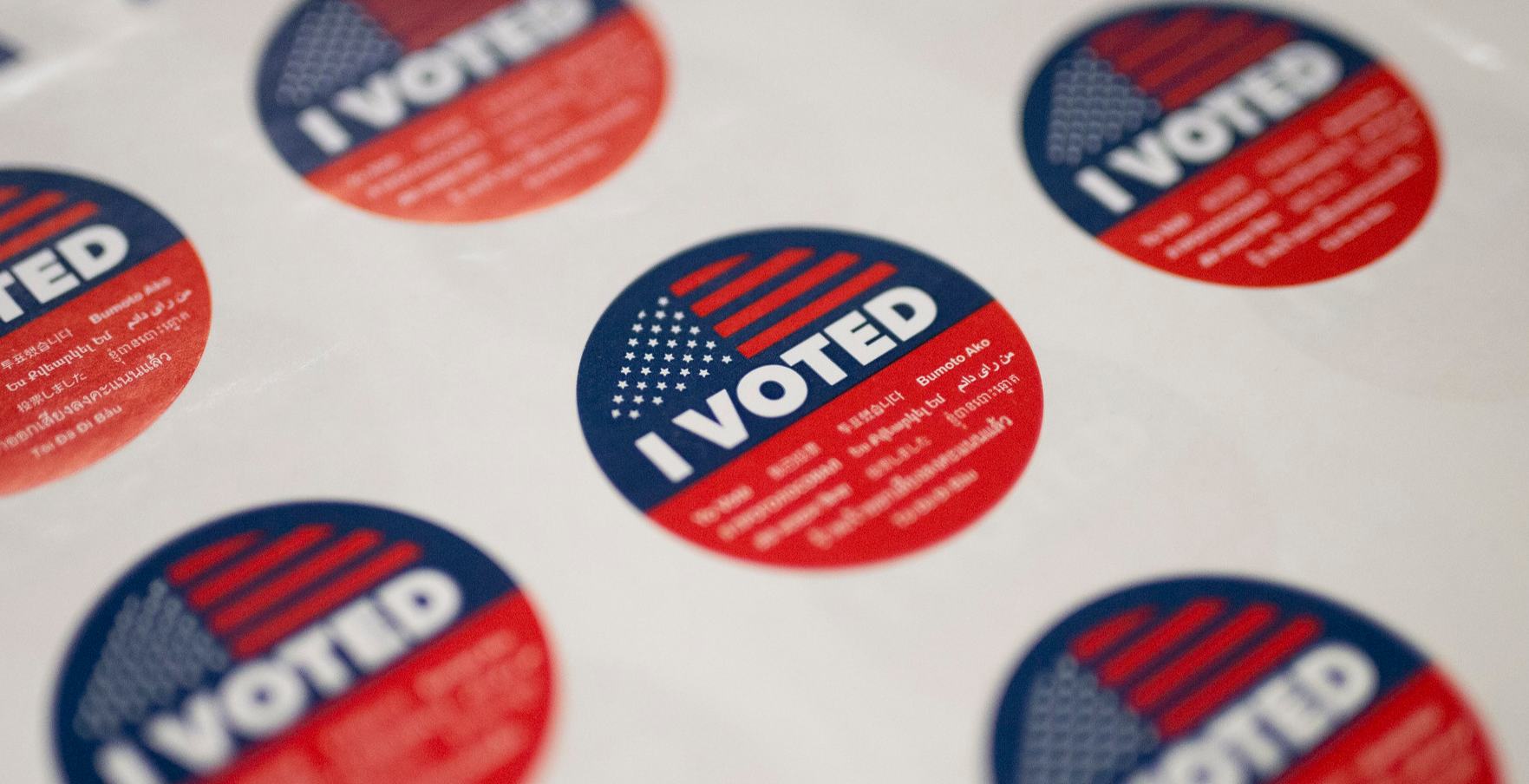
The Unique Women’s Coalition, Equality California and FLUX, a national division of the AIDS Healthcare Foundation, will host their second annual voter education town hall today at the Connie Norman Transgender Empowerment Center in Los Angeles from 7PM to 9PM tonight.
The organizations will present and discuss ballot propositions and measures that will appear on the November ballot and that affect the LGBTQ+ community in this part of the town hall series titled ‘The Issues.’
“The trans and nonbinary community is taking its seat at the table, and we are taking the time and space to be informed and prepare the voter base,” said Queen Victoria Ortega, international president of FLUX.
The town hall will feature conversations through a Q&A followed by a reception for program participants, organizational partners and LGBTQ+ city and county officials.
There will later be a third town hall before the election and The Connie Norman Transgender Empowerment Center will also become a voting location for anyone who feels like they need a safe space to vote, regardless of what voting district they are a part of.
“Our community is really asking for a place to talk about what all of this actually means because although we live in a blue sphere, housing and other forms of discrimination are still a very real threat,” said Scottie Jeanette Madden, director of advocacy at The Connie Norman Transgender Empowerment Center.
-

 Commentary4 days ago
Commentary4 days agoThe Supreme Court’s ‘Don’t Read Gay’ ruling
-

 Arts & Entertainment3 days ago
Arts & Entertainment3 days ago2025 Emmy nominations: ‘Hacks’ and ‘The Last of Us’ bring queer excellence to the table
-

 a&e features4 days ago
a&e features4 days agoThe art of controlled chaos: Patrick Bristow brings the Puppets to life
-

 News2 days ago
News2 days agoWest Hollywood to advance protections for diverse and non-nuclear families
-

 Movies3 days ago
Movies3 days ago‘Superman’ is here to to save us, despite MAGA backlash
-

 Sports3 days ago
Sports3 days agoHololive and Dodgers create a home for queer fandom
-

 Events2 days ago
Events2 days agoLos Angeles Blade to take special part in NLGJA Los Angeles inaugural journalism awards

